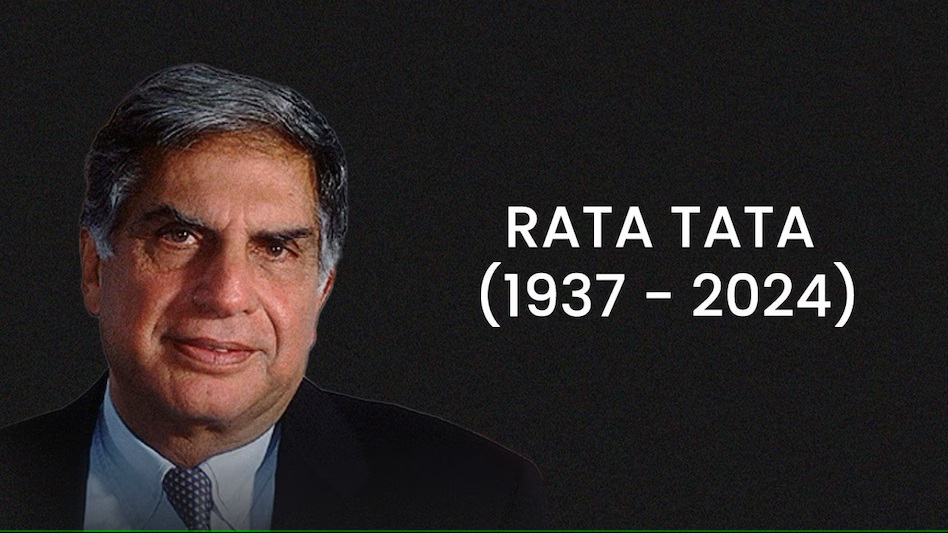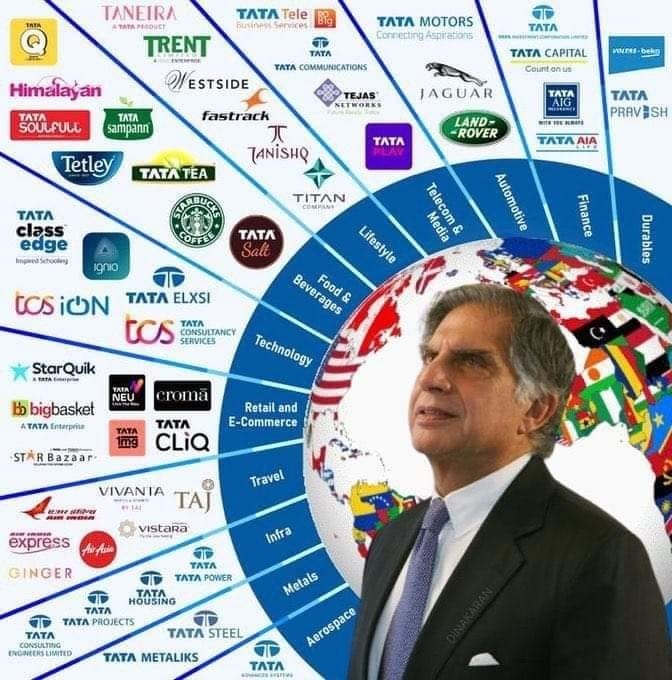Ratan Tata, the chairman emeritus of Tata Sons, passed away in Mumbai at the age of 86. Maharashtra Chief Minister Eknath Shinde announced that his last rites will be conducted on Thursday, October 10, with state honors.

Tata’s health had been a concern after he was admitted to Breach Candy Hospital earlier this week. On October 7, he clarified on X that his hospitalization was for routine age-related checkups. Unfortunately, his condition deteriorated rapidly, and he passed away just before midnight on October 9.
Tata leaves behind a remarkable legacy, having profoundly impacted both the Tata Group and the broader Indian industry. He graduated from Cornell University in 1962 with a degree in architecture and later attended Harvard Business School’s advanced management program in 1975.
His career at Tata began shortly after graduating, starting with a brief stint at an architectural firm in Los Angeles before returning to India to join Tata Steel. His ascent within the Tata Group unfolded as follows:
- 1971: Became director-in-charge of the National Radio and Electronics Company.
- 1981: Appointed chairman of Tata Industries, transforming it into a strategic think tank for the group.
- 1991: Took over as chairman of Tata Sons, succeeding the legendary J.R.D. Tata, and held the position until retiring on December 28, 2012.
During his tenure, Tata also chaired key group companies such as Tata Motors, Tata Steel, Tata Consultancy Services, and Tata Power. He served on international advisory boards for companies like Mitsubishi Corporation and JP Morgan Chase.
Under Tata’s leadership, the Tata Group’s revenues skyrocketed by approximately 40 times to over $100 billion. He skillfully navigated the company through major challenges, including the Asian financial crisis and the global financial crisis of 2008, while spearheading global expansion and acquisitions, notably Tetley Tea and Jaguar Land Rover.

Tata Motors, under his guidance, ventured into passenger car manufacturing with the launch of the Indica hatchback. He also introduced the Tata Nano in 2008, aiming to provide an affordable city car for Indian families, but the project faced numerous challenges, leading to its eventual discontinuation in 2020.
In 2012, Tata stepped down as chairman of Tata Sons, passing leadership to Cyrus Mistry. Mistry, who was the youngest chairman at 44, faced unexpected challenges during his tenure, leading to his dismissal in October 2016, which stirred controversy regarding the group’s performance and strategy.
Tata’s wealth was estimated at around ₹3,800 crore in 2022. Known for his modest lifestyle, he was deeply committed to philanthropy, chairing several trusts, including the Sir Ratan Tata Trust and the Tata Institute of Fundamental Research. He was also a trustee at Cornell University and the University of Southern California.
A passionate animal lover, Tata’s dream project, the Small Animal Hospital, opened in Mumbai earlier this year, offering comprehensive veterinary care.
He received numerous accolades, including the Padma Vibhushan in 2008 and recognition as an officer of the Order of Australia in 2023, alongside honorary doctorates from various institutions.
Tata remained unmarried throughout his life, revealing that he had come close to marriage on four occasions but ultimately chose not to. He is survived by his half-brother, Noel Tata, and his family.








